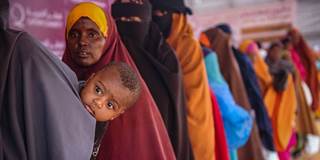Helping Africa Help Refugees
Refugee management in Africa is hindered by scarce resources, social tensions, and cumbersome regulatory processes. Donors, international and regional organizations, and African governments must intensify their efforts to develop a rights-based refugee-management framework.

JOHANNESBURG – The United Nations High Commissioner for Refugees (UNHCR) recorded a total of 68.5 million forcibly displaced people worldwide in 2017, the highest number in decades. This figure included 25.4 million refugees, or 2.9 million more than in 2016, representing the largest-ever annual increase.